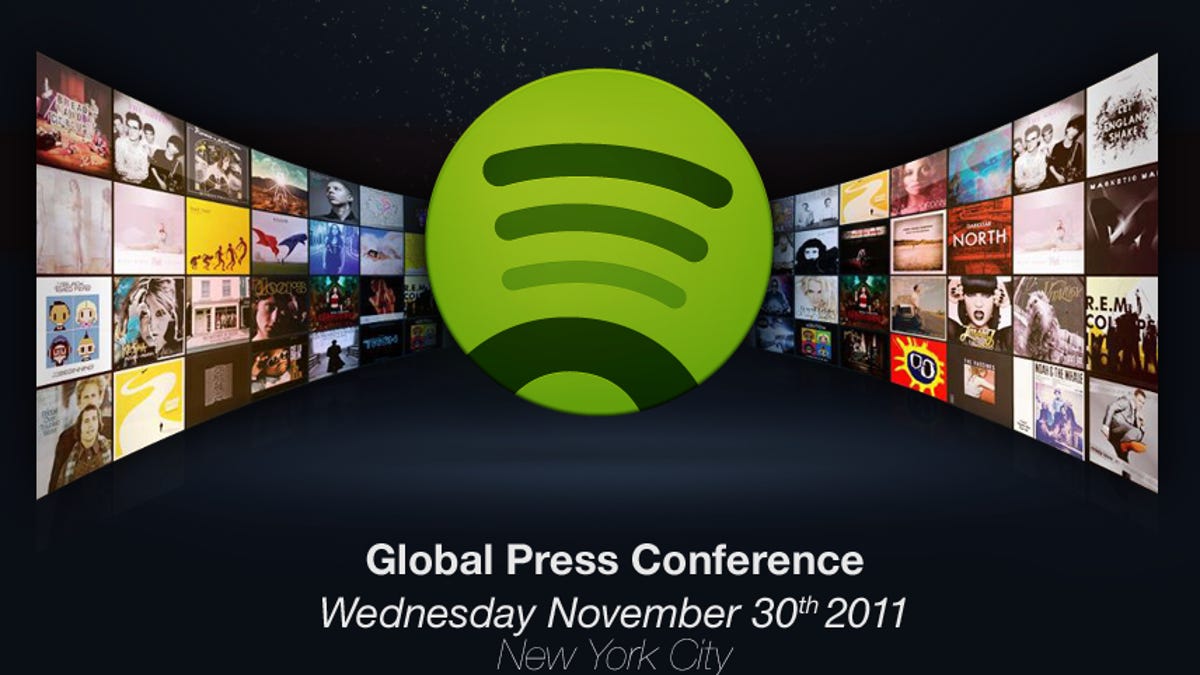Spotify opens up service to app developers
The company hopes to augment its streaming-music service with new features offered by third-party apps, though it's not yet clear what those will look like.

Spotify said today that it was opening its server up to developers who can create apps that link into the streaming music service's vast library of songs.
Essentially, the company plans to turn its service into a platform for developers, who can build HTML 5-based apps that CEO Daniel Ek says are "seamlessly integrated, both visually and functionally."
"We're opening up the platform in way that really makes Spotify yours," Ek said during a press conference today.
The Swedish company is hoping to emulate the success seen by Apple and Facebook, which have created dominant "ecosystems" for their users thanks largely to the breadth of apps within their respective worlds. The addition of third-party apps would augment the Spotify service and help it stand out from the sea of other competing music services, including ones offered by giants such as Apple, Google and Amazon.
But without a strategy on how developers can make money off of the apps, it's still unclear how many are willing to flock to Spotify. The tech world is littered with companies that have tried--and failed--to create their own app ecosystems.
Ek said it's still early in the process and that the company would "figure things out along the way."
Spotify is off to a nice start. It plans to launch with 12 applications, including ones created by Rolling Stone, BillBoard, and sharing service Last.fm. (Full disclosure: Last.fm is part of CBS Interactive, which also owns CNET.) The initial apps will be free to all users.
The apps are design to enhance the Spotify experience. The Rolling Stone app will provide editorial content and advice on what songs to check out. Last.fm allows you to create a history of songs you've played, and share it with others. Songkick will let you know where and when a band has played, and where it will play next.
The apps will initially only work with the desktop version of Spotify. The company will approve each app, similar to the way Apple reviews programs before they launch on the App Store. The company didn't say whether these apps will eventually be usable on smartphones or tablets.
An Apps section will pop up in the left sidebar section of Spotify, allowing customers to use the App Finder to install new programs. A beta version will go live later today.
Already a popular service in Europe, Spotify is relatively new in the U.S. The service launched here in July to decent fanfare after much anticipation. Since then, though, it's been unclear just how successful it's been in signing up subscribers willing to pay a monthly fee for access to its catalog of more than 15 million songs.
Ek said that the service has since grown to 10 million active users, which include 2.5 million paying customers.
"We want our service to be like water," Ek said. "Available everywhere, and accessed seamlessly."
Customers can use a limited, ad-supported version of the service for free, but must pay $4.99 a month for unlimited access and $9.99 for a premium service that includes mobile access, better quality audio, and exclusive content. The service allows users to play nearly any song immediately and to create playlists for later use.
Ek defended Spotify's business model, which involves the company paying the labels each time a song is played, something critics are concerned could be taxing as its user base expands.
"We don't feel they are onerous terms," Ek said. "We've very happy with how our model is performing."
In September, Spotify partnered with Facebook, allowing users to more easily share what they've been listening to in real time and to see the same for their friends. Spotify ran into some criticism when it began asking new users for their Facebook logins when they signed up for the music service.
Ek, however, insisted customers like the Facebook feature and are sharing more music than ever.
In working with developers to add new features to Spotify, the company acknowledged its own limitations and preference to focus on its core service.
"There's only that much that Spotify itself can do," Ek said. "But we want fans to have all kinds of cool music experiences."
Corrected at 11:49 a.m. PT: to change the number of applications available at launch.
Updated at 10:16 a.m. PT: to include additional details about the new platform and more comments from Ek.

